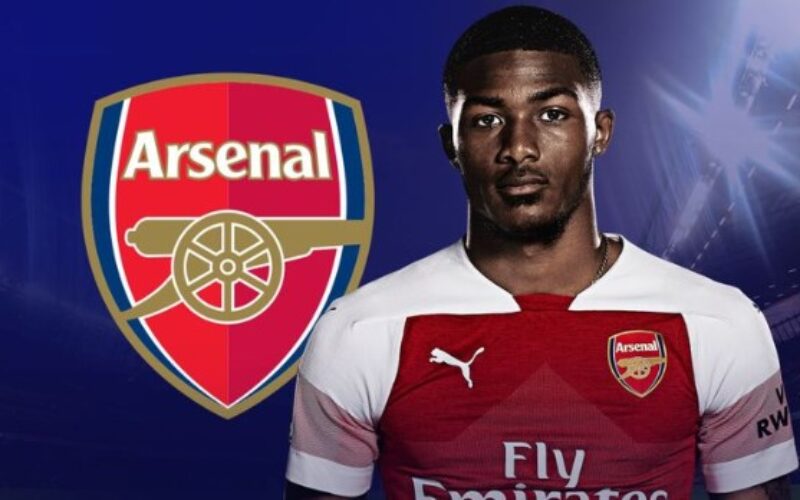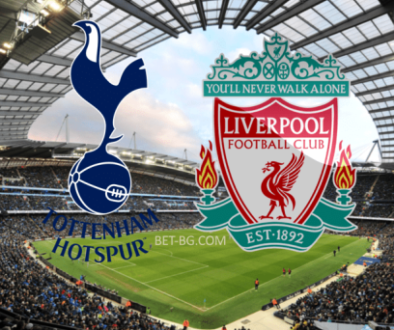Ainsley Maitland-Niles providing a solution to Unai Emery’s right-back problem at Arsenal
Hector Bellerin’s knee injury was a heavy blow to Arsenal but Ainsley Maitland-Niles is progressing nicely in his absence, writes Nick Wright.
Ainsley Maitland-Niles started out as a striker. He became a central midfielder in Arsenal’s academy. Then, in January, he told Sky Sports he sees himself as a winger.
It is not yet clear exactly where his long-term future lies, but it’s at right-back that he has played most of his senior football, and that’s certainly where Arsenal need him now.
Hector Bellerin’s cruciate knee ligament injury in January represented a real blow to Unai Emery – not just because it deprived him of one of his most influential players in the first half of the season, but because it exposed a lack of depth in his position.
Maitland-Niles was first to deputise, but his inexperience showed in the FA Cup loss to Manchester United and the Europa League defeat away to BATE Borisov. The responsibility fell to Stephan Lichtsteiner on other occasions, but the 35-year-old fared little better.
Emery scrambled for a solution, even trying out forgotten man Carl Jenkinson and centre-back Shkodran Mustafi in the position, but it wasn’t long before he turned back to Maitland-Niles. The academy product was reinstated when Manchester United returned to the Emirates Stadium in the Premier League in early March. Thankfully for his manager, there were clear signs of progress.
Maitland-Niles recovered impressively from a difficult first half in which he struggled to contain Paul Pogba and the marauding Luke Shaw. The youngster got forward effectively after that, but most importantly, he also showed defensive resilience, making more tackles and interceptions combined than anyone else on the pitch except for Aaron Ramsey.
It was an eye-catching show of character from Maitland-Niles, and he picked up where he left off against Rennes a few days later. The 21-year-old had been an unused substitute in the chaotic first-leg defeat in France, with Mustafi favoured at right-back, but back in London he was invaluable in securing Arsenal’s progress.
His goal, a header from a Pierre-Emerick Aubameyang cross, showed his penchant for getting into dangerous positions when deployed at wing-back, and it was another impressive defensive performance, too. Rennes’ left winger Benjamin Bourigeaud, the scorer of their equaliser in the first leg, did not even manage a shot on goal in the second.
Maitland-Niles has always been accomplished in possession. „When you see him on the ball, he’s so graceful, elegant and composed,“ said Sky Sports pundit Gary Neville last season. But one criticism sometimes levelled at him is that he can be too casual out of it. Having grown up as an attacking player, could those defensive instincts be drummed into him?
The recent evidence is encouraging. There has been a clear increase in his defensive alertness and application in recent months and the statistics prove it. Maitland-Niles has made at least four tackles in each of his last four starts. He only reached that number in three of his previous 11.
It owes a lot to Emery, who has rated Maitland-Niles highly from the start. Indeed, in May, before the Spaniard had even taken his first training session, Arsenal’s now departed chief executive Ivan Gazidis revealed Emery’s knowledge of Arsenal’s young players was a key factor in his appointment, using Maitland-Niles as an example.
„If we were speaking about one of our young players, if we targeted Ainsley Maitland-Niles for example, Unai knows Ainsley,“ said Gazidis. „He’s watched him, he’s familiar with his patterns of play, his capabilities, he’s very excited about his potential and was able to talk about how excited he was to work with Ainsley, to develop him as a player.“
It is no coincidence that Maitland-Niles was handed a new long-term contract just a few weeks later, and it seems the admiration is mutual. Emery is a notoriously demanding boss who leaves nothing to chance with his attention to detail, but Maitland-Niles has responded well to his methods.
„Him expecting more from me makes me work 10 times harder every day,“ he told Sky Sports in January. „I know that he’s watching me, and I know he wants more than what I’m producing. For me, it’s never enough, I need to do more constantly. I’ll just become a workhorse from doing that.“
That attitude is serving Maitland-Niles well and there is further encouragement to be found when looking more closely at the statistics. A comparison between the two shows the youngster has been far more proactive than Bellerin this season, making more than three times as many tackles as his team-mate and intercepting with greater regularity too.
Bellerin has contributed five assists in the Premier League to Maitland-Niles’ one, but the underlying data shows it’s Maitland-Niles who ranks higher both for chances created and dribbles completed per 90 minutes. He has only played 613 minutes to Bellerin’s 1533 so far, meaning it is still a small sample size, but it bodes well nonetheless.
Maitland-Niles will still be expected to make way when his senior team-mate does eventually return to fitness next season, but his recent progress has at least softened the blow of losing him. For Emery, a problem position appears to have been filled. Perhaps Maitland-Niles’ long-term future lies at right-back after all.



